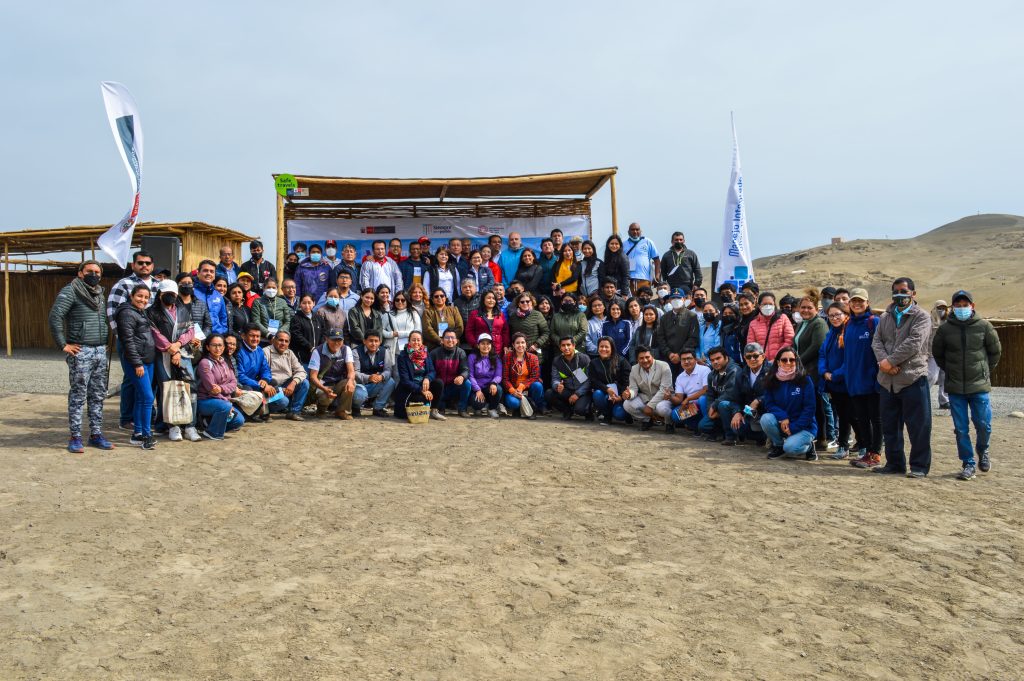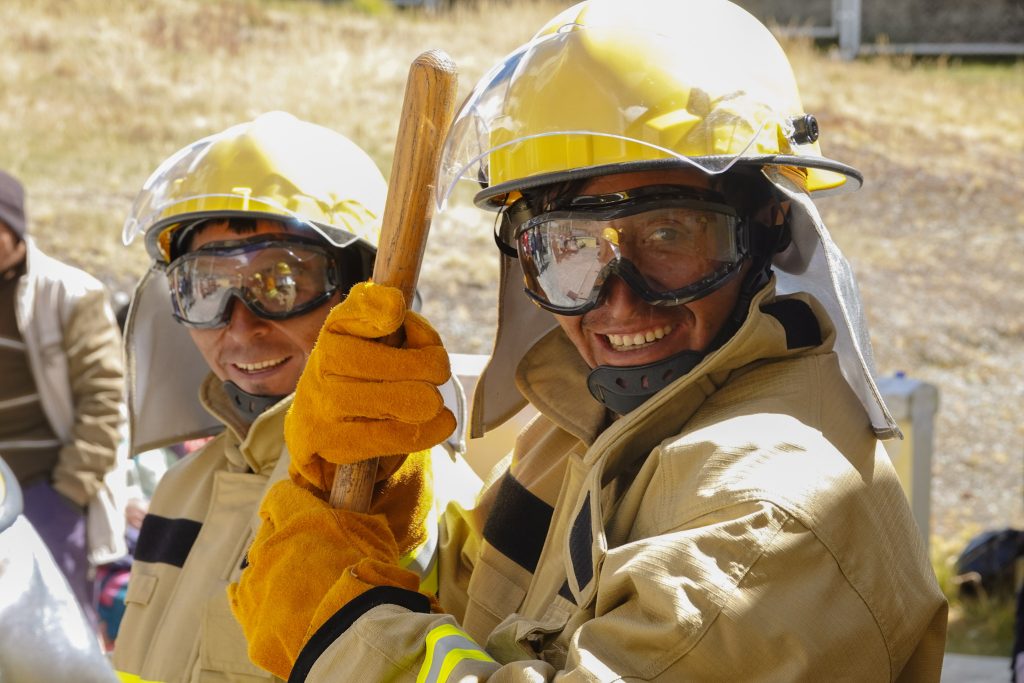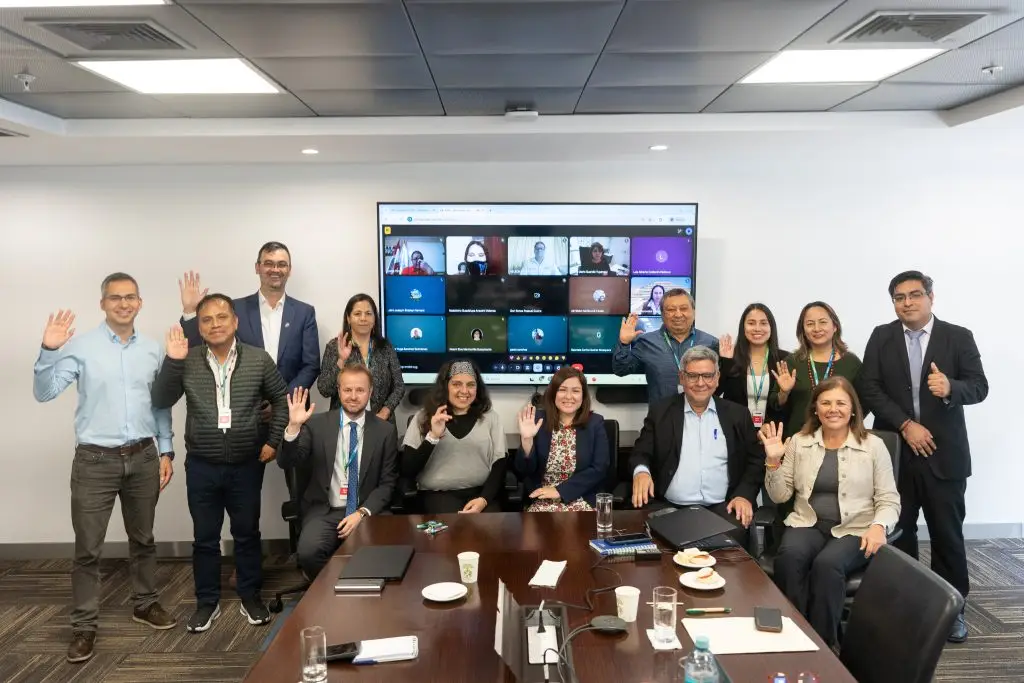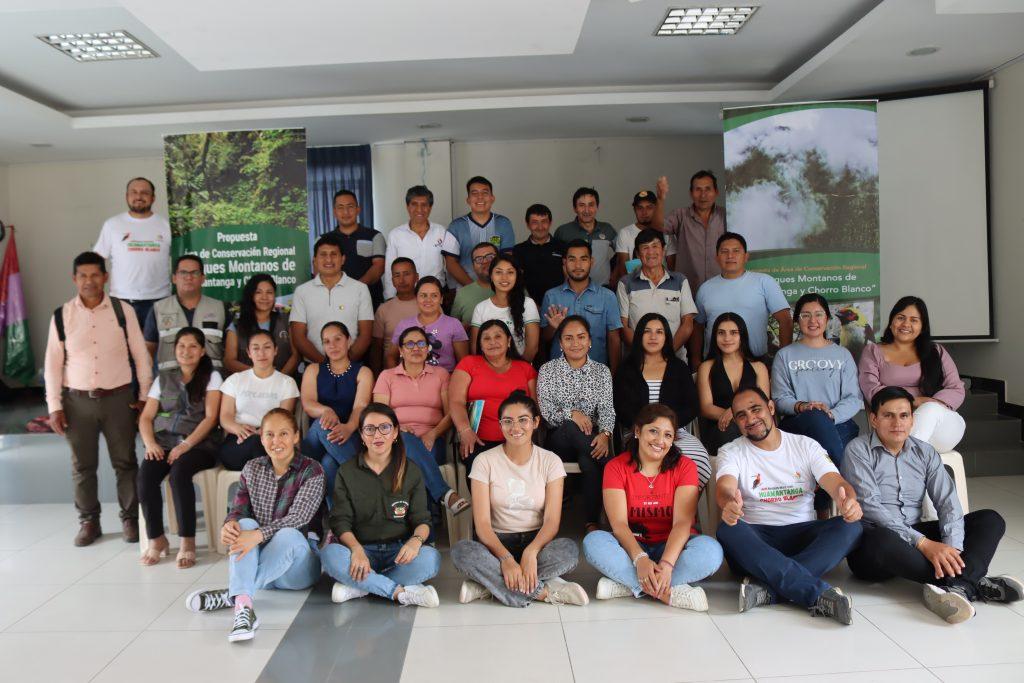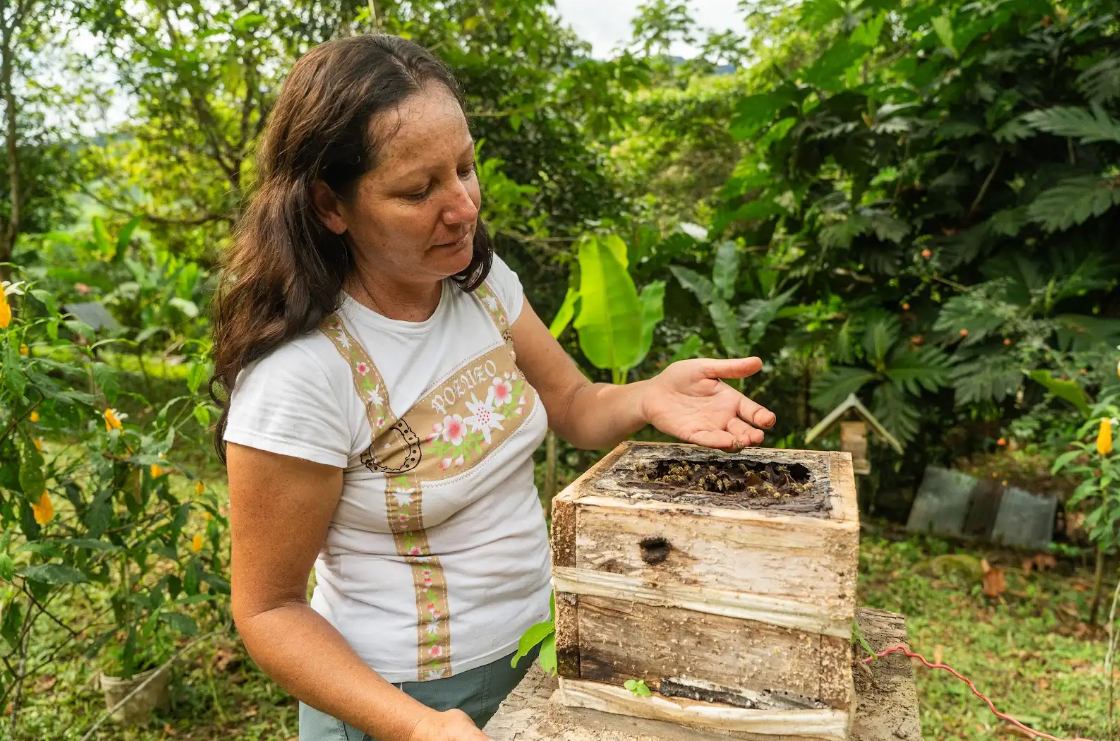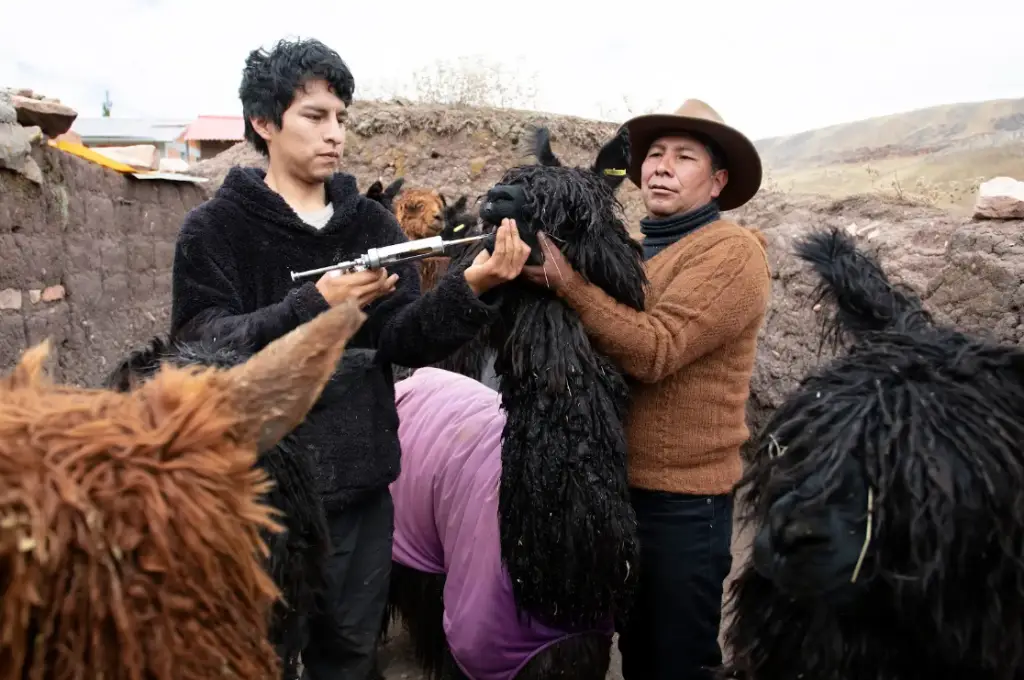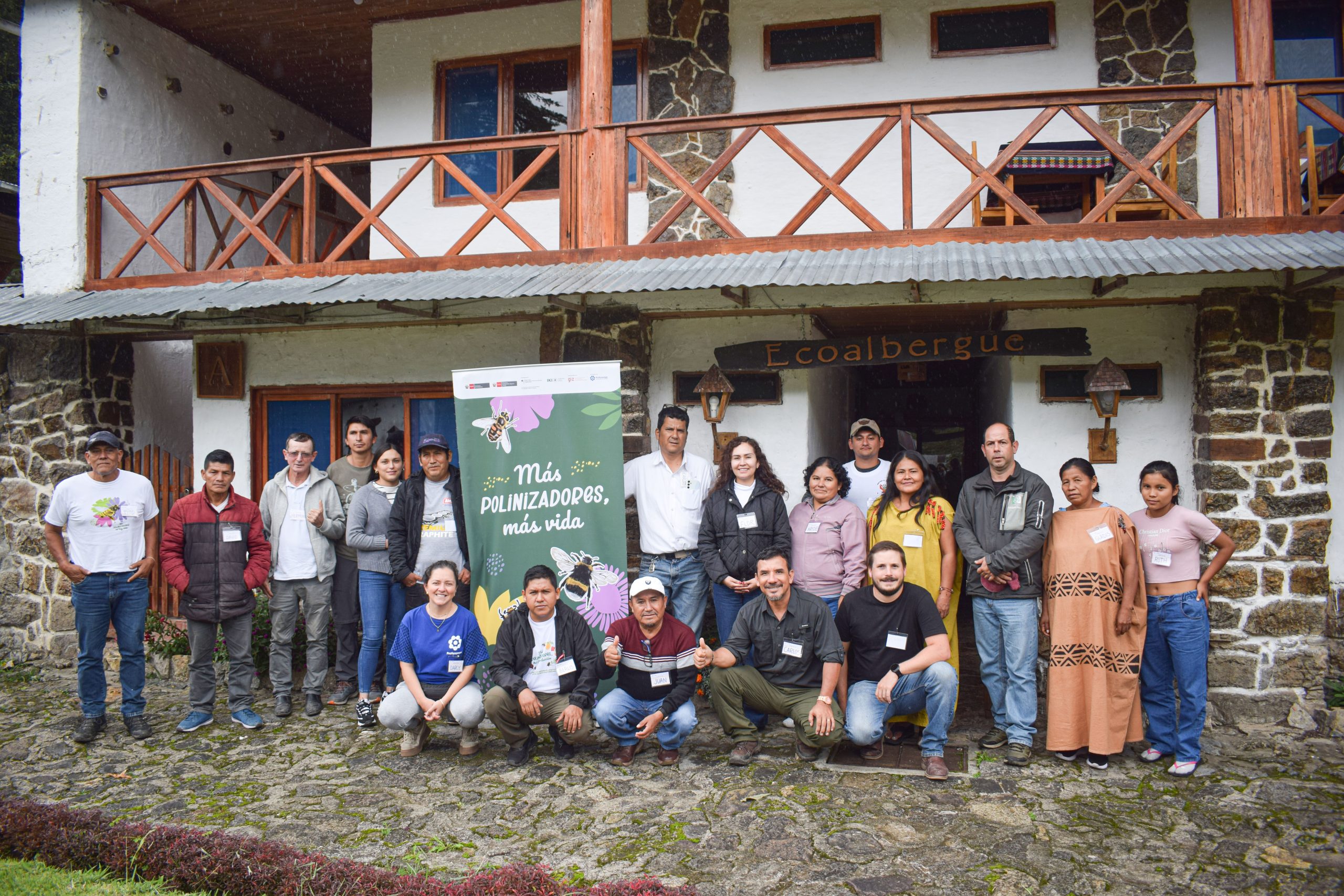During the VI National Seminar on Integrated Management of the Coastal Marine Zone 2022 organized by the Ministry of the Environment at Universidad Nacional Faustino Sánchez Carrión in Huacho, 3 bio-businesses developed under the project “Adaptation to the impacts of climate change on Peru’s coastal marine ecosystem and its fisheries” (AMC) of Profonanpe, the Peruvian Environmental Fund, were showcased. This event, which brought together representatives from the public and private sectors, provided an opportunity to learn about experiences in strengthening early response capabilities in the event of environmental disasters.
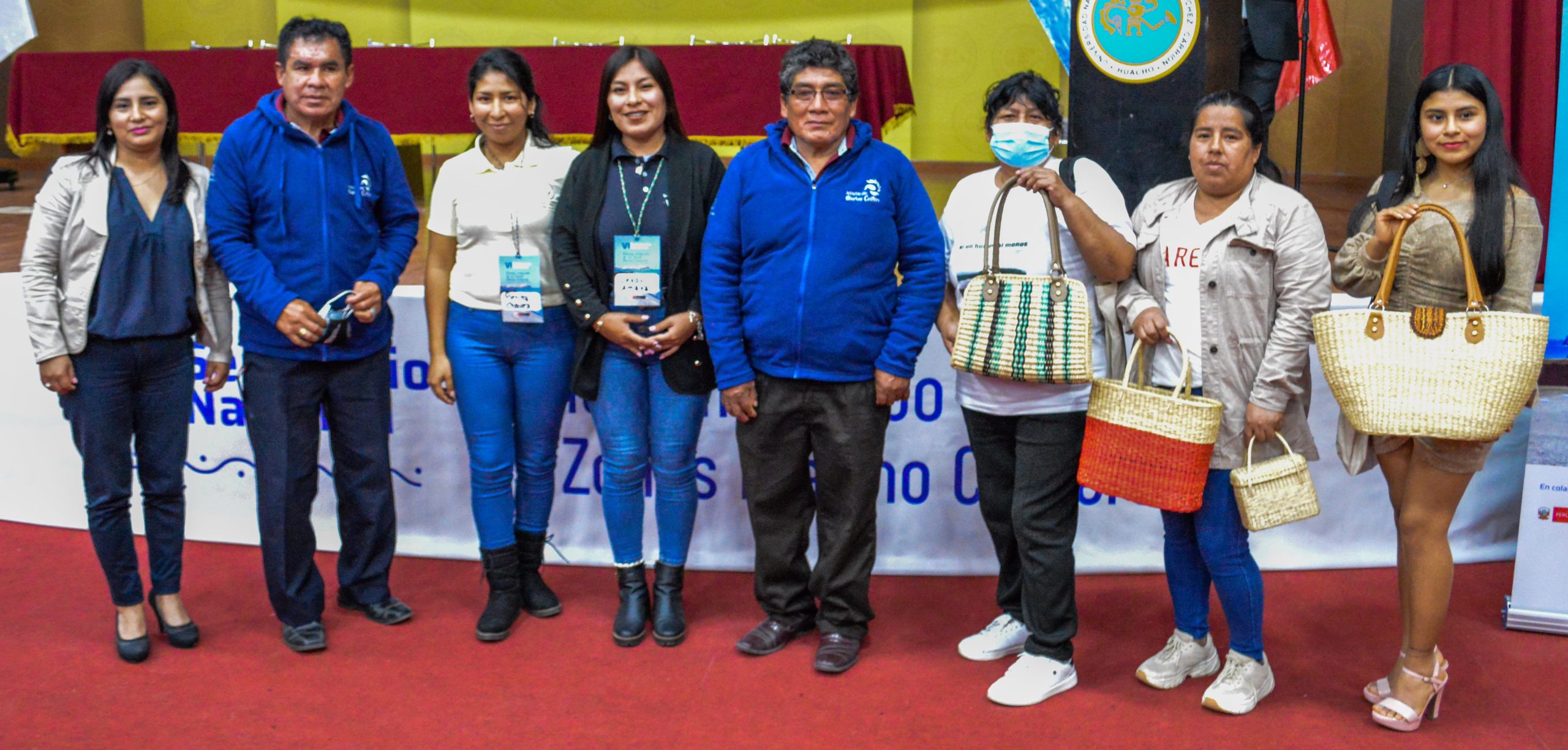
During their participation in the “Entrepreneurship for the sustainability of ecosystems and local development” block, the bio-businesses Asociación de Pescadores Artesanales Consumo Humano San Pedro Caleta de Carquín, Asociación Madre Perla de Cabo Blanco, Asociación de Mujeres Artesanas Medio Mundo (AMARTEMM) and Organización Los Hijos del Viento Cabo Blanco were presented, which highlighted the joint work they carry out with their strategic allies and the impact achieved to conserve their ecosystem while strengthening their enterprises that improve the quality of life of their communities.
During the second day of the event, the enterprises were visited in their areas of action. The tour began at the APROBIOSPECC plant, an initiative led by women who produce biofertilizers from hydrobiological waste. In recent weeks, its work has received national recognition through the viralization of a video by the Peruvian Environmental Reporters that tells the story of their entrepreneurship.
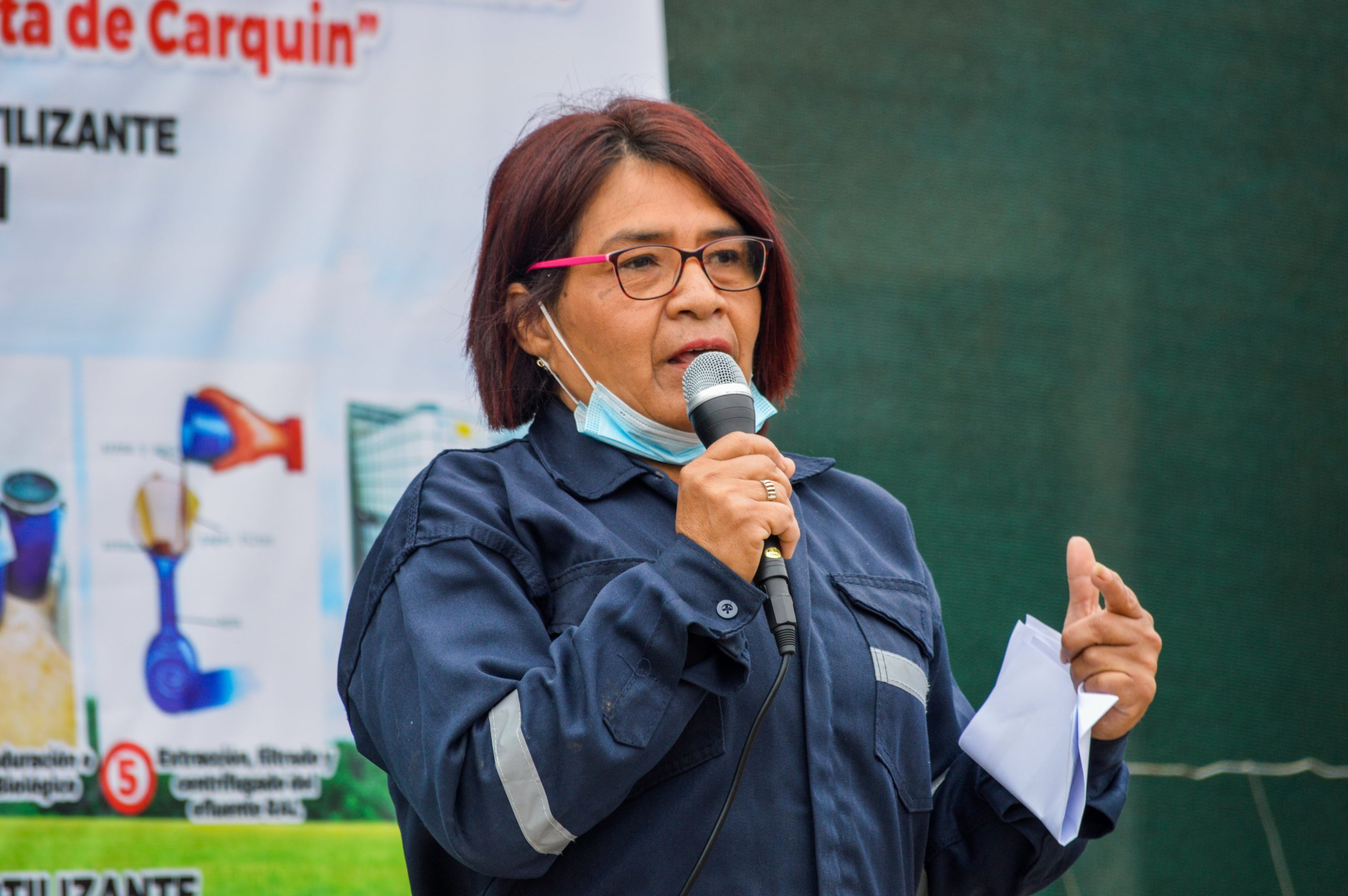
“With the support of the project, we have made a 180-degree turnaround, because we have obtained machinery, improved logistics and clothing. In addition, we have strengthened our family basket with our work and developed a natural product that also benefits the country’s farmers,” said Marleny Lapo, president of APROBIOSPECC.
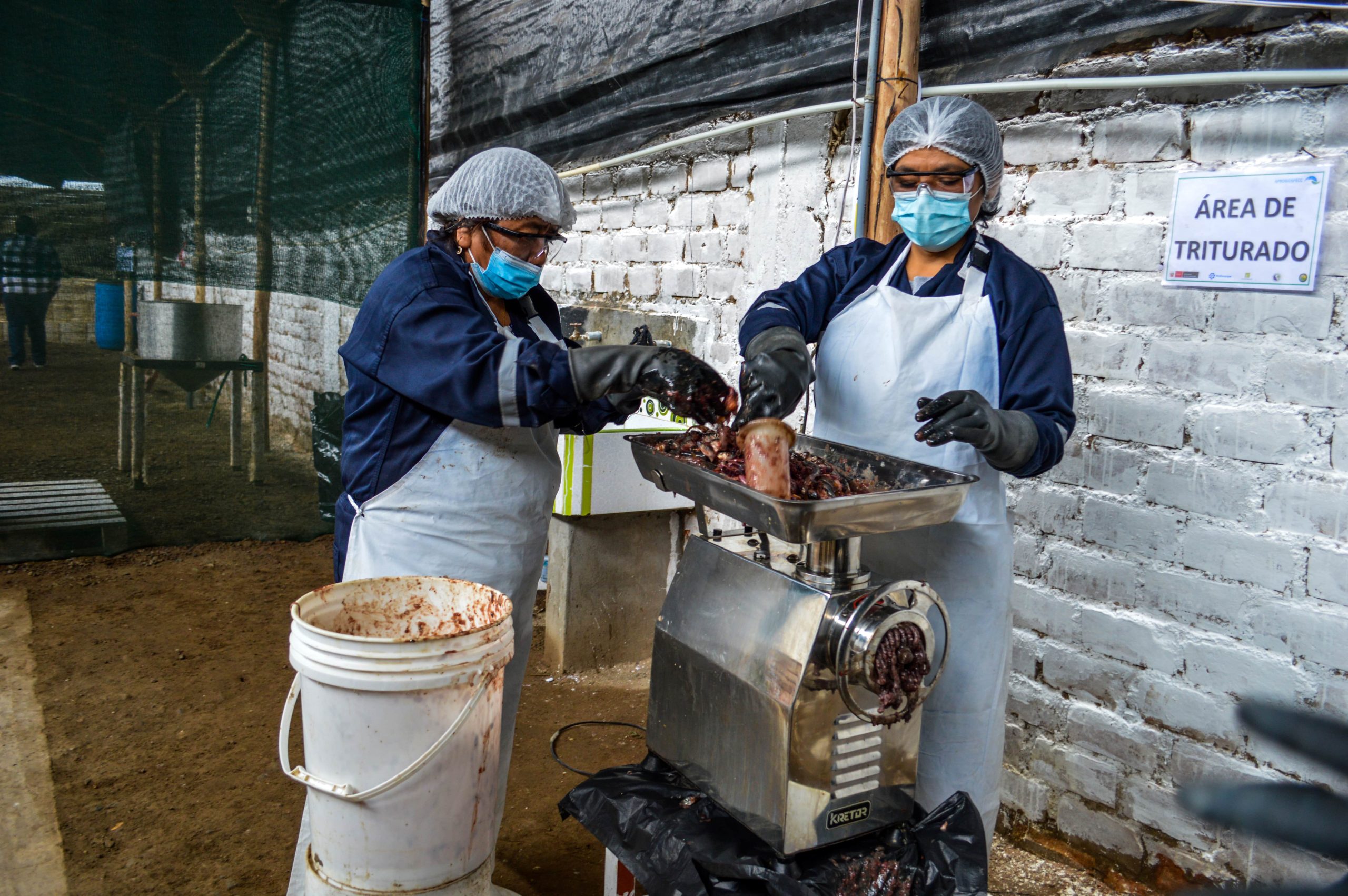
The tour continued with a visit to Asociación de Mujeres Artesanas de Medio Mundo (AMARTEMM), in the Végueta district. They work with vegetable reed as raw material to develop handicrafts and furniture. The third stop was at the Végueta Fishermen’s Cove, where artisanal fisherman José Pinella made visible the work of local fishermen to promote sustainable tourism on Don Martín Island, through his enterprise “Don Martín Tours”.
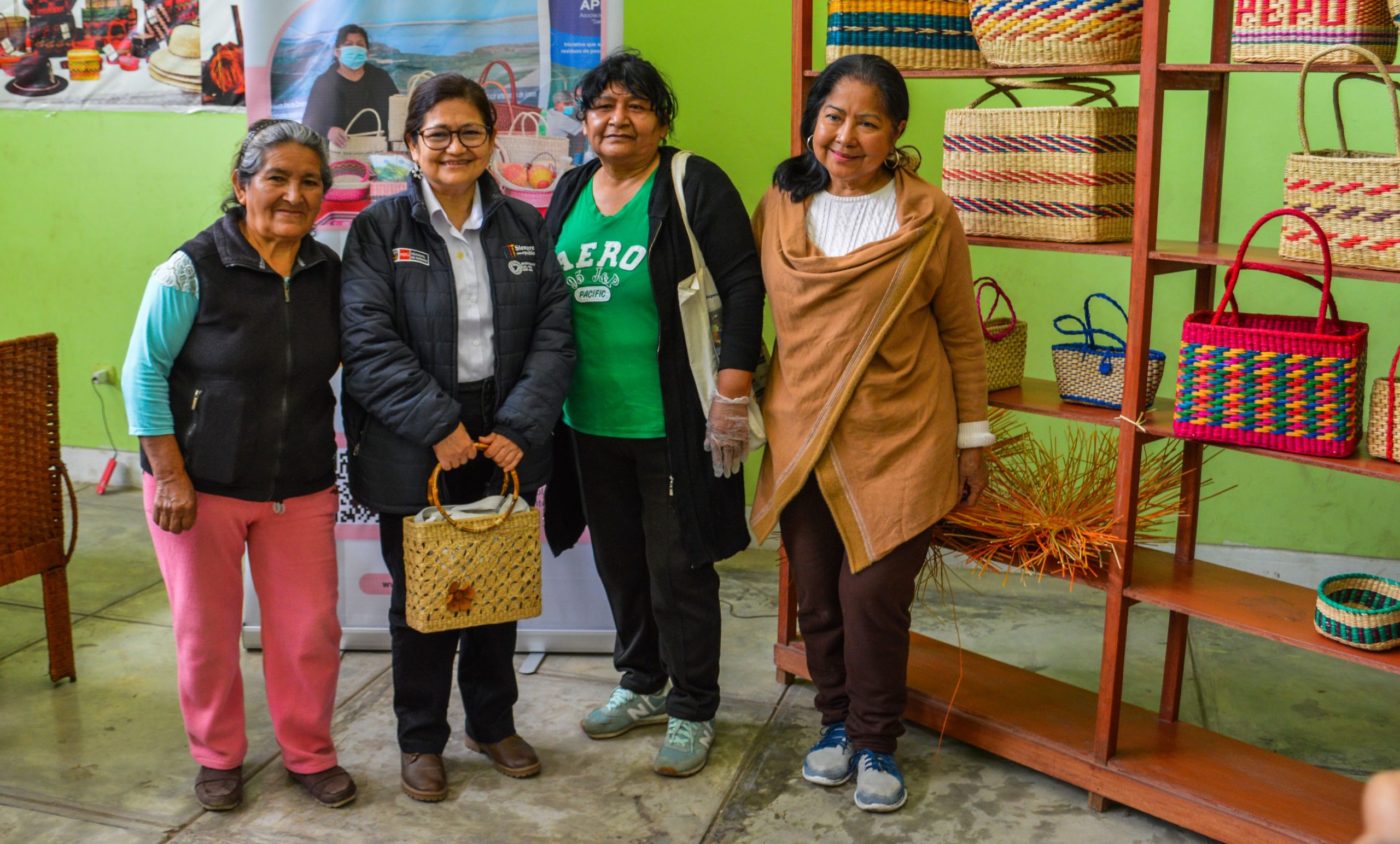
Yamina Silva, Vice-Minister of Strategic Development of Natural Resources of MINAM, who was informed of the initiatives, emphasized: “We must continue joining efforts to continue with the implementation of Integrated Management Plans for Marine and Coastal Zones in Peru, which is fundamental for the sustainable use of the coastline, generating wellbeing for people and the environment”.
It is worth mentioning that the seminar was promoted by the Ministry of the Environment in cooperation with the Regional Government of Lima, Universidad Nacional Faustino Sánchez Carrión, IMARPE and Profonanpe’s Coastal Marine Adaptation project.
About the Marine-Coastal Adaptation Project
The project «Adaptation to the impacts of climate change on Peru’s coastal marine ecosystem and fisheries” focuses its interventions in two pilot areas: Huacho (Punta Salinas – Végueta) and Máncora (Cabo Blanco), to reduce the vulnerability of coastal communities to the impacts of climate change on coastal marine ecosystems and their fishery resources.
In 2016, the project was approved for financing from the Adaptation Fund, through Profonanpe. The project is being executed by the Ministry of Production, in coordination with the Instituto del Mar del Perú (IMARPE) and the “A Comer Pescado” (Let’s eat fish) Executing Unit of Produce, with an implementation period from 2018 to 2023.


